
How ZMA Can Boost Your Immune System
Wondering how to boost your immune defences and fight against illness? Discover the science of ZMA and how it can help your immune system.

Welcome to a deep dive into zinc, an unsung hero among essential micronutrients.
As you’ll discover, zinc plays instrumental roles in an array of bodily functions for men from testosterone and hormone regulation to fortifying our immune system and enhancing cognitive function.
But here’s the real kicker – zinc has a secret weapon up its sleeve. Not only does it boost testosterone levels, but it also supercharges testosterone efficacy. It does these by triggering a cascade of biological events, including elevating Luteinizing hormone (LH) levels, stimulating Leydig cell function, increasing Dihydrotestosterone (DHT) levels and ramping up androgen receptor activity.
Intrigued? Read on to find out about its potent effect on our health and well-being.

Zinc is an essential micronutrient, responsible for various bodily functions.
The Institute of Medicine, Food and Nutrition Board define the Recommended Dietary Allowance (RDA) of Zinc as 11mg per day for men.
As the RDA is the daily intake of a nutrient considered sufficient to meet the requirements of 97.5% of healthy individuals, daily intake values below 11mg pose increased risks to health to 97.5% of men.
The World Health Organization(WHO) estimates that zinc deficiency affects an average of 31% of people internationally, with rates ranging from 4 to 73% in different regions of the world.
Zinc is obtained by humans through foods and supplements. Some foods are better than others, but generally speaking the following foods provide zinc in our diets:
While we can get zinc from food, many of us do net get sufficient amounts. In fact, in 2015 a study stated that 1.1 billion people were at risk of zinc deficiency and therefore also the negative effects that come with it.
Instead, zinc can be taken as supplements to ensure that we stay in prime health. It is a key component of the original ZMAN+ supplement formulation, created to enhance and optimise overall health and wellbeing.
Zinc is known to have numerous benefits on health. Some of these include:
Zinc supplementation has been scientifically proven to have numerous effects on hormone regulation. It acts as a crucial cofactor for enzymes involved in testosterone synthesis, which leads to increased circulating testosterone production and enhanced efficacy.
This promotes a healthy hormonal balance, contributing to improved sexual health, libido, general motivation, fat metabolism, muscle mass, body hair and facial hair growth, and overall well-being in men.
Zinc plays a pivotal role in fertility and reproductive health in both males and females. In males, it is essential for the production of healthy sperm, supporting the development and maturation of sperm cells. By aiding in the regulation of testosterone production, it also helps to optimise sexual health.
Zinc is essential for maintaining a robust immune system. It plays a vital role in supporting immune cell function, such as the activation and proliferation of T-cells, B-cells, and natural killer cells.
Zinc’s immune-boosting properties enable the body to effectively combat infections, viruses, and harmful pathogens. It also promotes wound healing by facilitating cell growth, tissue repair, and collagen synthesis, thereby enhancing the body’s ability to recover from injuries, wounds, and surgical procedures.
Zinc’s involvement in protein synthesis is crucial for muscle growth, repair, and development. It plays a vital role in the transcription and translation of genetic information, allowing cells to produce the necessary proteins for muscle tissue formation and repair, vital for men’s health.
Adequate zinc levels support the proper growth and maturation of both adults and children, aiding in maintaining or increasing muscle mass, strength, and overall physical performance.
Zinc serves as an essential component for numerous enzymes in the body, enabling them to perform their functions optimally. It acts as a cofactor for enzymes involved in critical processes such as DNA synthesis, protein building, and carbohydrate metabolism.
By facilitating these enzymatic reactions, zinc ensures the smooth operation of important cellular processes, contributing to overall metabolic efficiency and proper physiological function.
Adequate zinc levels are essential for optimal brain function. Zinc is involved in various neurochemical processes, including neurotransmitter synthesis, nerve cell communication, and the protection against oxidative stress.
It supports memory formation, learning, and attention by promoting efficient neural signalling and maintaining the structural integrity of brain cells, and furthermore, zinc’s antioxidant properties help safeguard the brain against age-related cognitive decline and neurodegenerative diseases.
Zinc plays a significant role in maintaining healthy bones and promoting optimal bone density. It actively participates in the synthesis and mineralization of bone tissue by supporting the activity of osteoblasts, the cells responsible for bone formation, making it essential in men’s health.
It also helps regulate the production and secretion of collagen, a vital component of bone matrix, ensuring the strength, integrity, and density of bones. Adequate levels are important for proper bone development, maintenance, and reducing the risk of osteoporosis and fractures as we age.
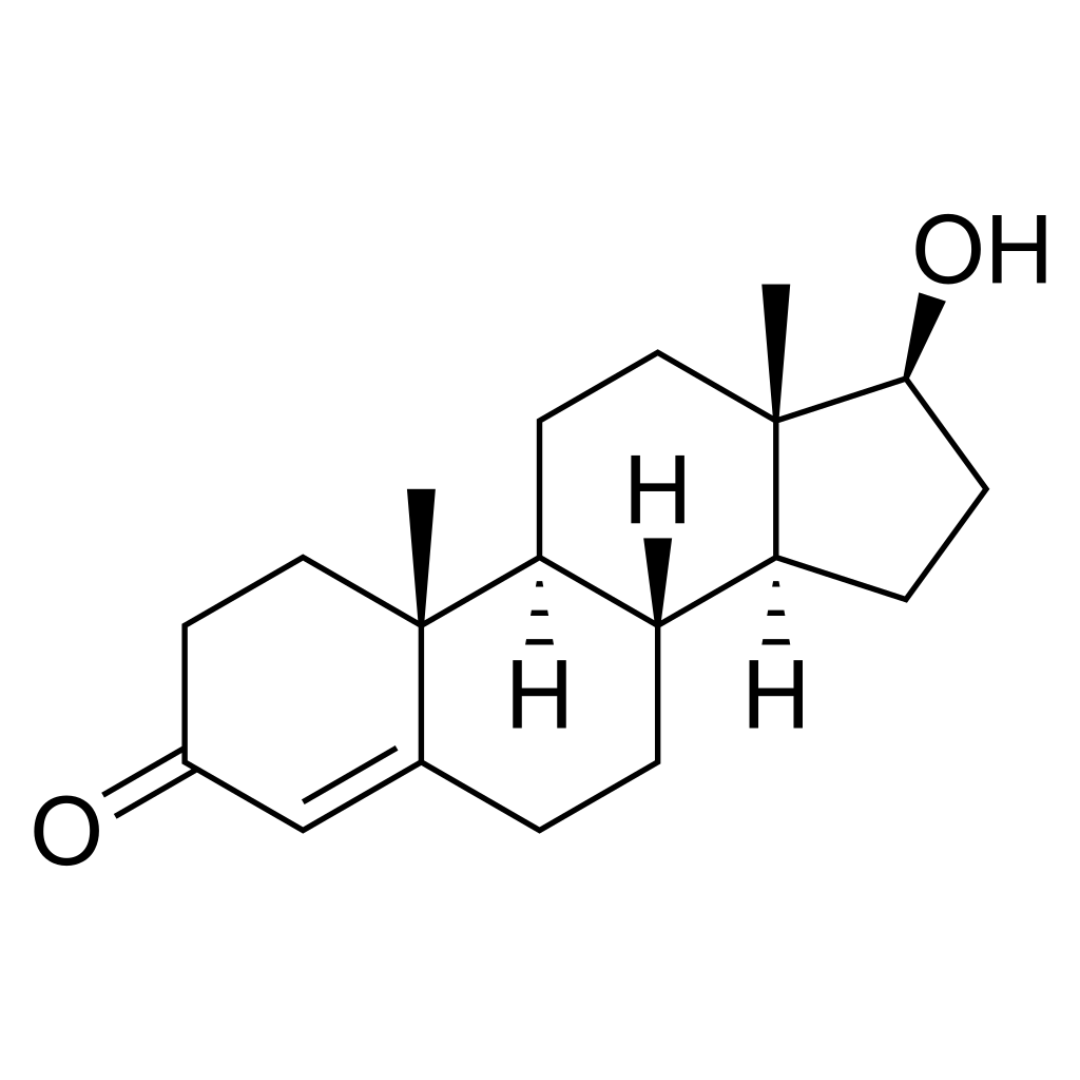
Zinc has been proven to increase testosterone production and efficacy, particularly in men with zinc-deficiency.
Numerous studies have investigated the link between zinc and testosterone in men. The results of three of them are listed below:
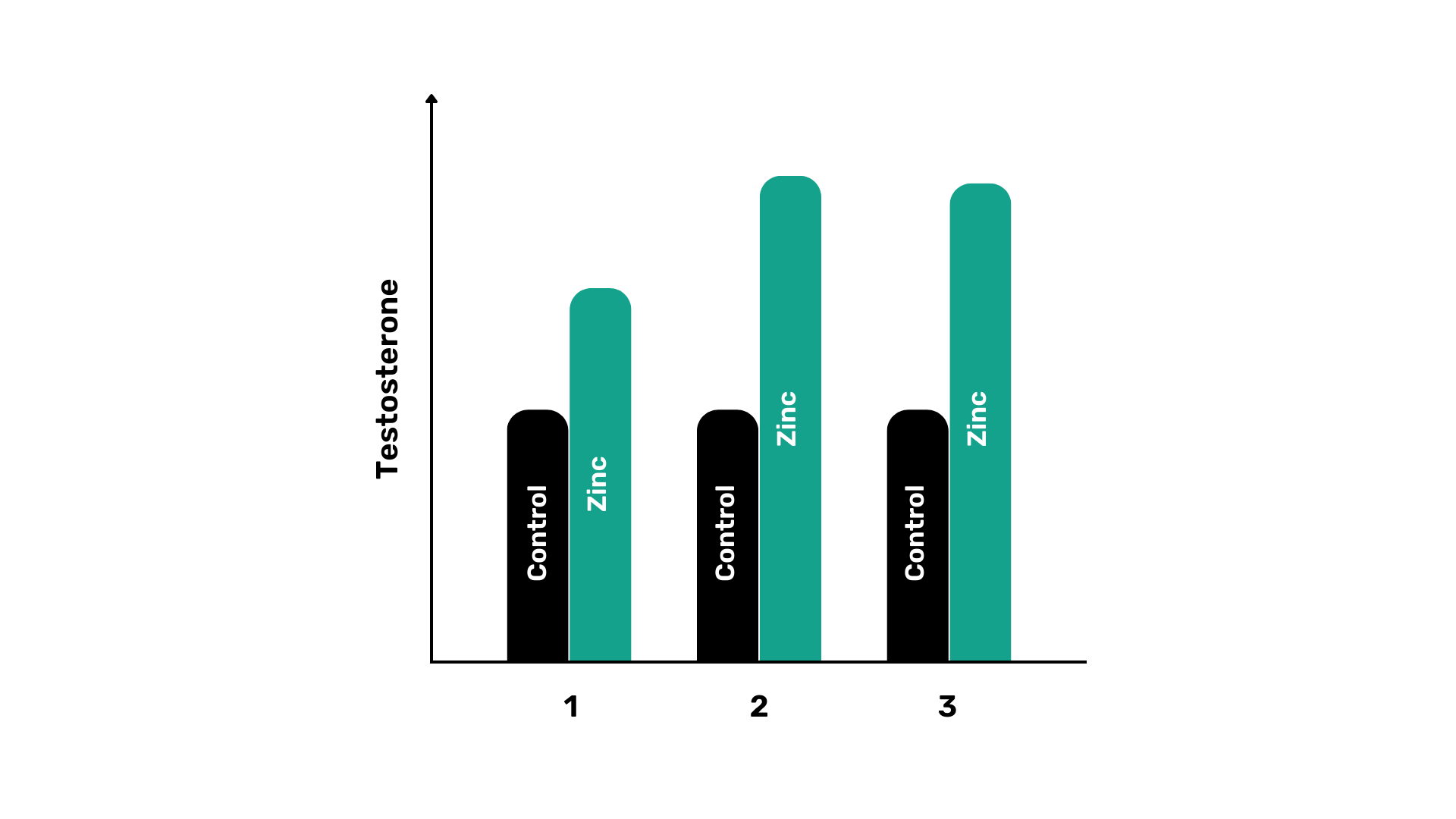
Zinc plays a role in a number of the mechanisms within the Hypothalamic Pituitary Gonadal (HPG) axis. It increases testosterone production and efficacy through multiple mechanisms.
Luteinizing Hormone is sent by the anterior Pituitary (in the pituitary gland) to leydig cells in the testes, to instruct them to convert cholesterol in testosterone. By increasing luteinizing hormone, leydig cells produce more testosterone.
Zinc has been shown to increase luteinizing hormone.
The effect of zinc on luteinizing hormone and testosterone was investigated in a 2010 study. 100 males with zinc deficiencies were given supplements each day for 6 weeks. Researchers measured sex hormone levels before and after. The results showed a clear relation between zinc, luteinizing hormone, and testosterone:
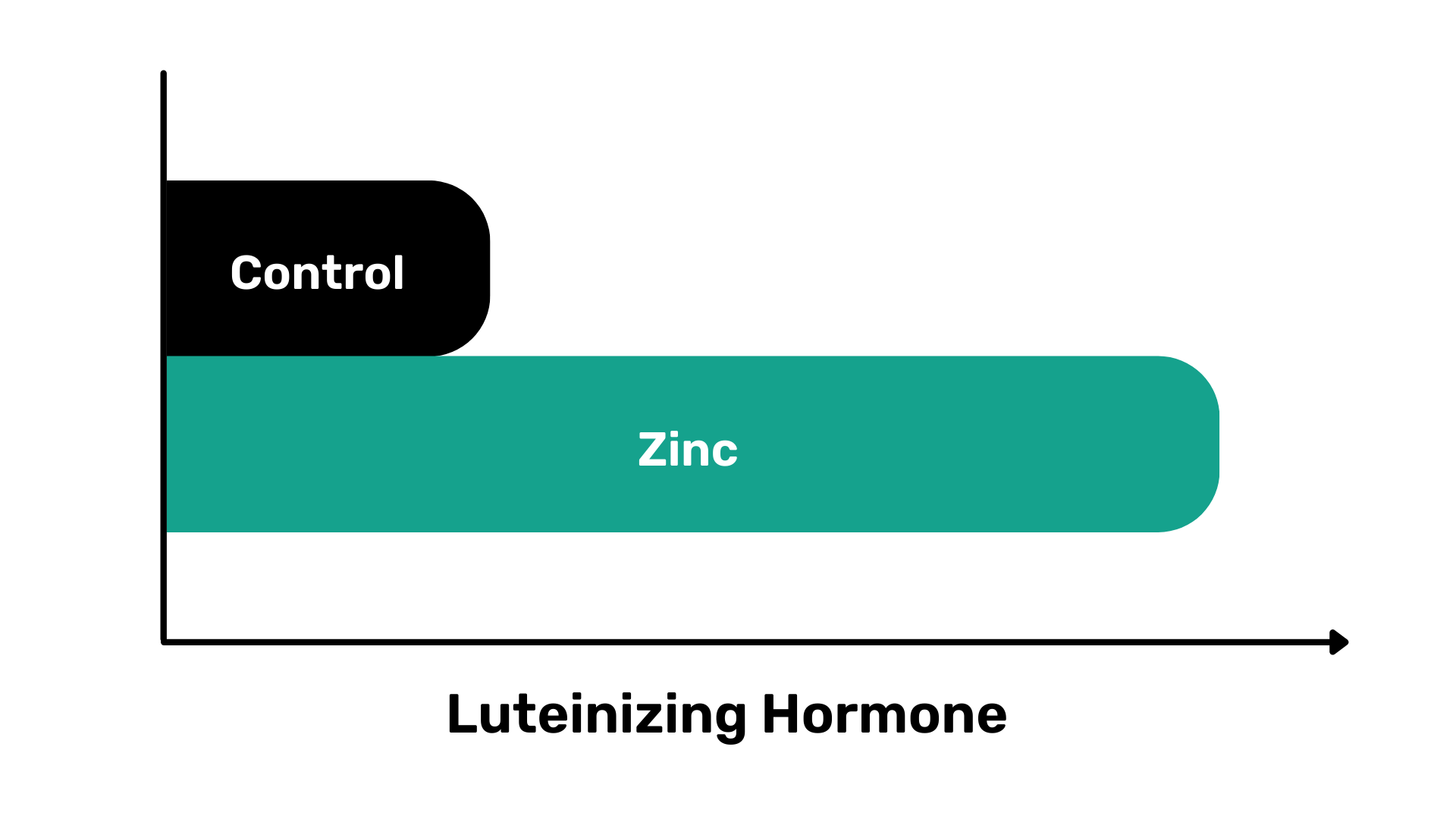
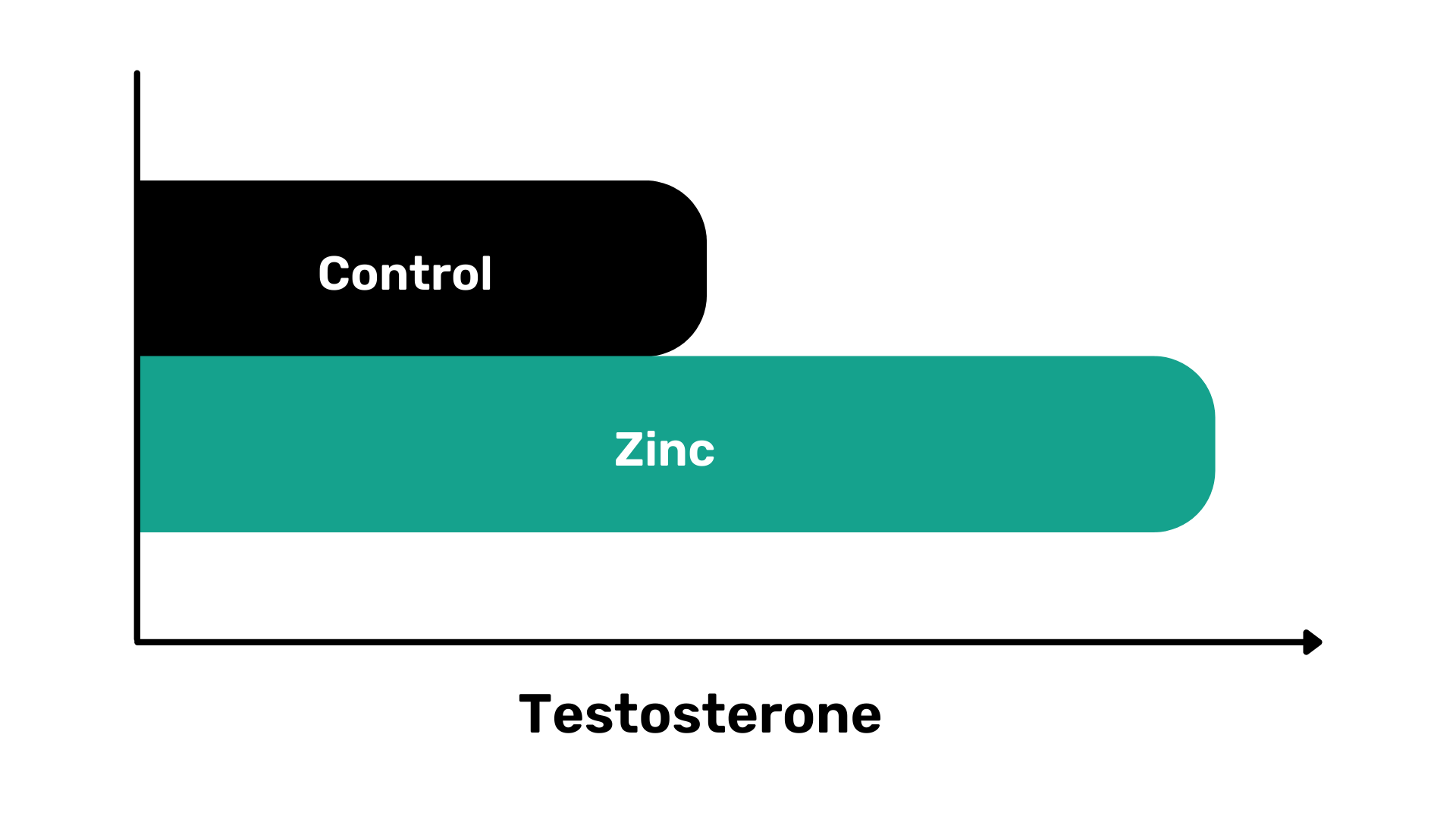
An animal study considering hormone levels was published in 1996. One group was fed a zinc deficient diet, while another was given zinc within their diet. The group given zinc saw:

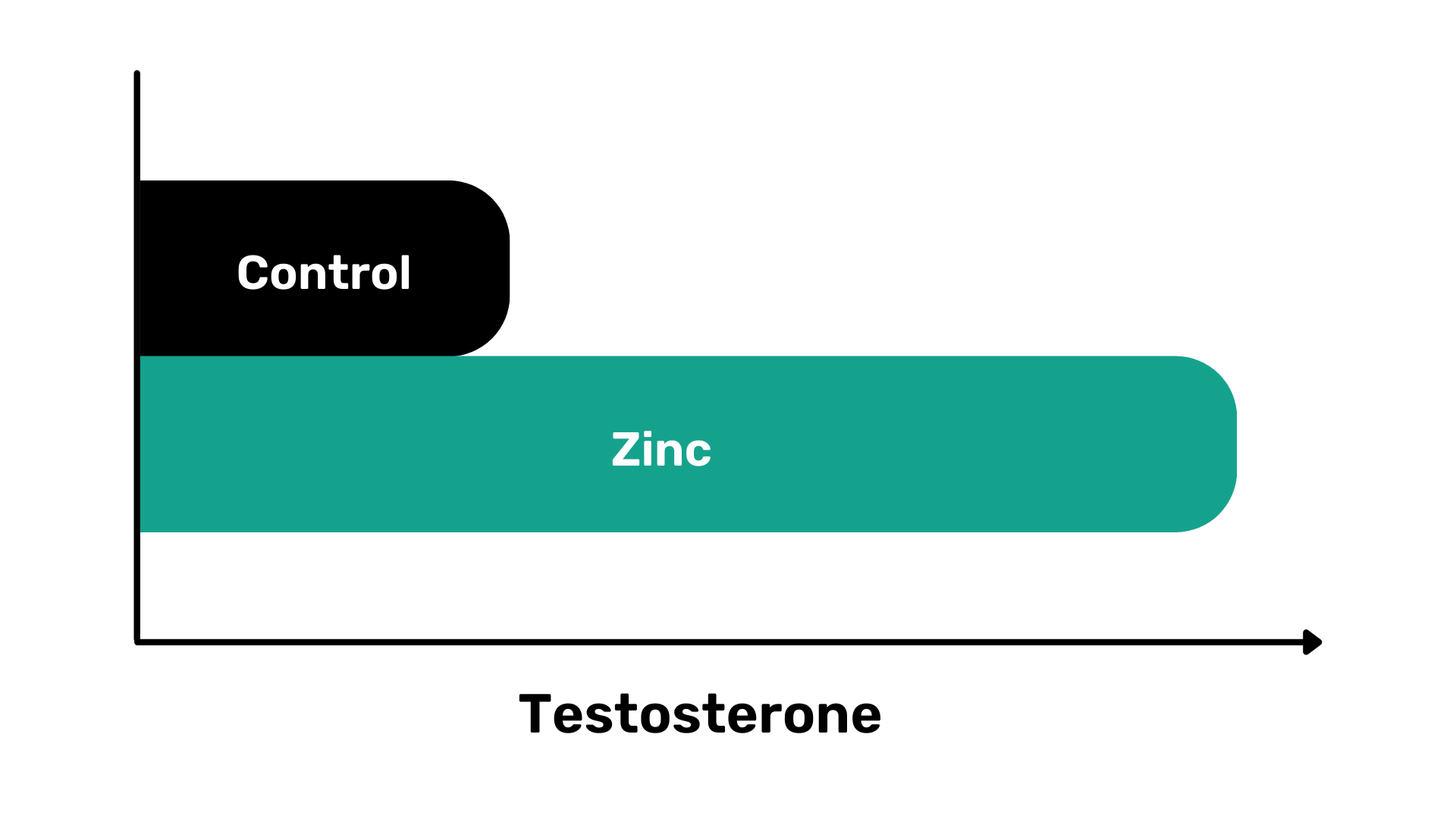
Leydig cells are located in men’s Testes, and as mentioned before, produce testosterone from cholesterol. For testosterone to be produced, leydig cells must be functioning properly.
Zinc is essential for proper leydig cell function.
One study published in 1984 demonstrated that zinc deficiency led to leydig cell failure. The study stimulated the luteinizing hormone receptors in leydig cells, to signal for leydig cells to produce testosterone, and compared the reaction between a control group and a zinc deficient group. Results showed zinc was essential for leydig cell function as:
This therefore showed that without sufficient zinc levels, leydig cells produced testosterone at a significantly lower rate.
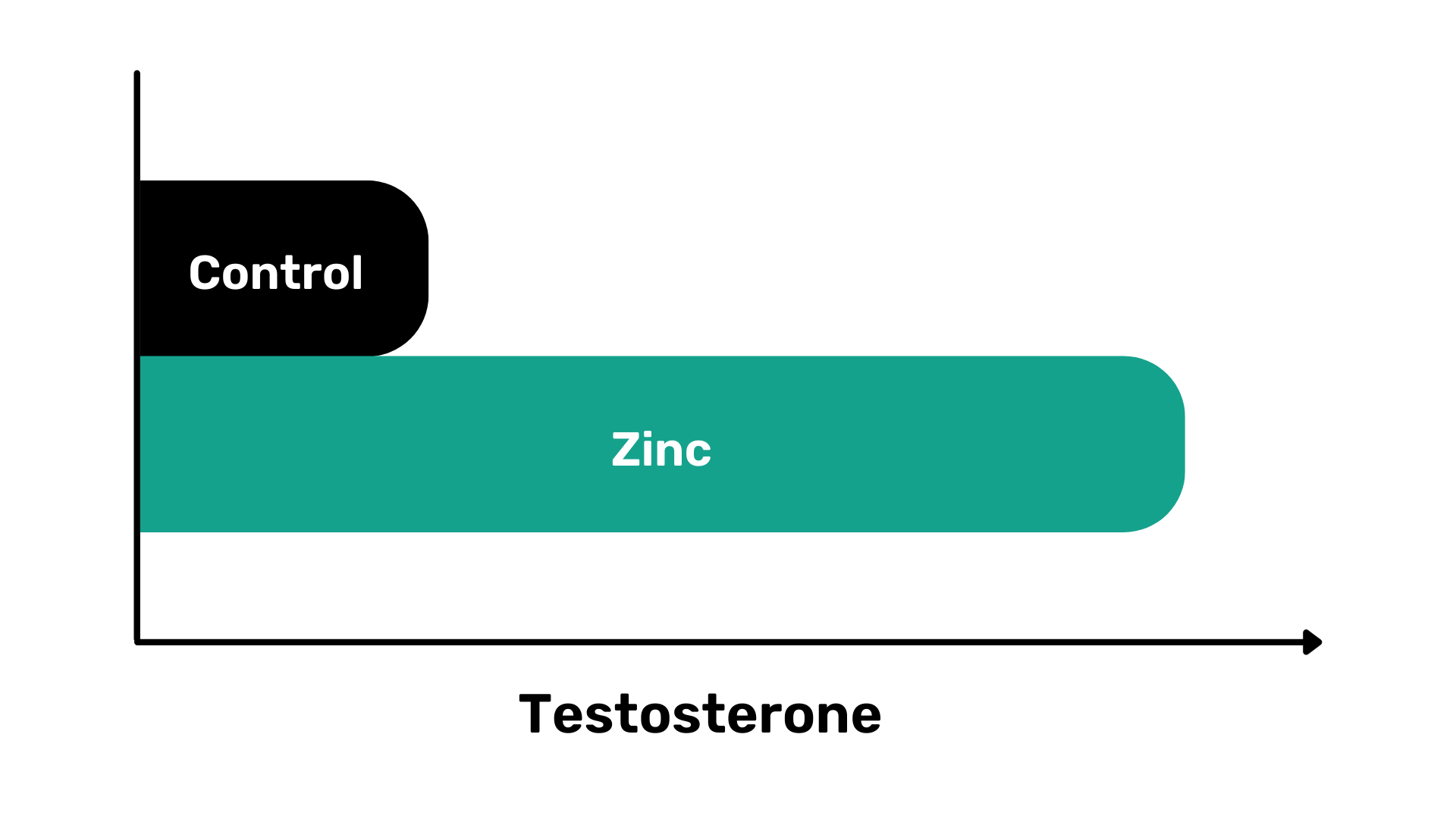
Dihydrotestosterone (DHT) is what testosterone gets converted into by 5 alpha reductase, in a process named DHT synthesis. DHT has the same effects as testosterone but is significantly more potent.
It is binds to androgen receptors approximately four-times better than testosterone, and has a three-times slower dissociation rate. This means it binds to the places where testosterone acts better while also lasting for longer.
Zinc increases DHT levels.
In a 2009 study, the effects of zinc supplementation on male hormone levels was investigated. Men were studied and split into two groups. One group had testosterone levels below 4.8 ng/ml, while the other had levels above it. Researchers administered daily zinc supplements to both groups for 40-50 days, and measured hormone levels before and after. In both groups, zinc supplementation increased DHT levels significantly:
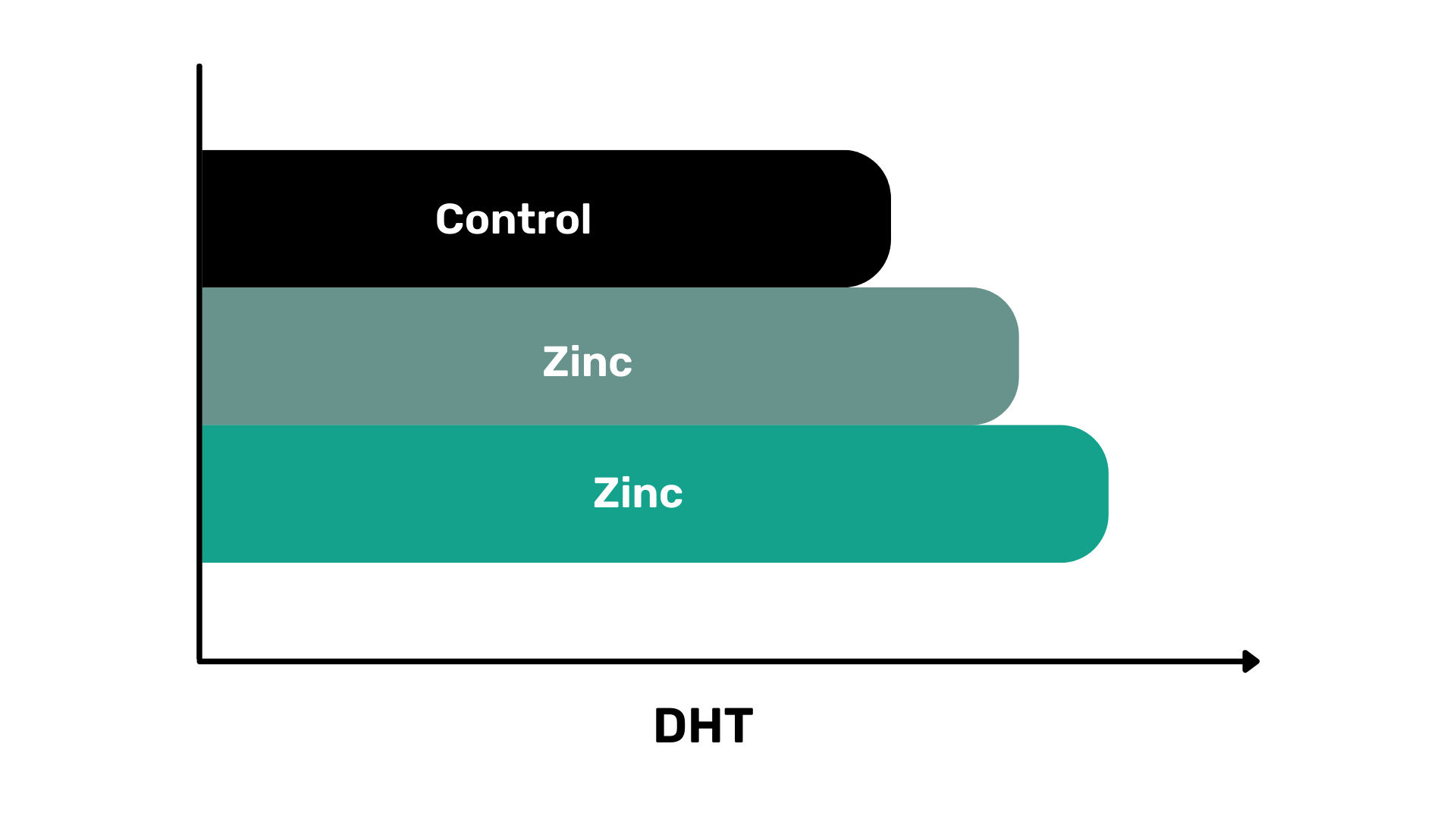
Once in the bloodstream, testosterone and DHT are distributed across the body, and to have their effect, they must be able to bind to cells. Androgen receptors are protein molecules located inside cells and are responsible for binding cells to androgen hormones, such as testosterone and DHT. By increasing androgen receptor protein expression, the amount of testosterone and DHT that bind to cells increases, and therefore makes them more effective.
Zinc increases androgen receptor protein expression.
A 1996 study investigated the effects of zinc on male hormones. One group of rats received a diet enriched with zinc, while another group consumed a zinc-deficient diet. Researchers measured androgen receptor levels before and after, and revealed a significant effect of zinc on androgen receptor protein expression.
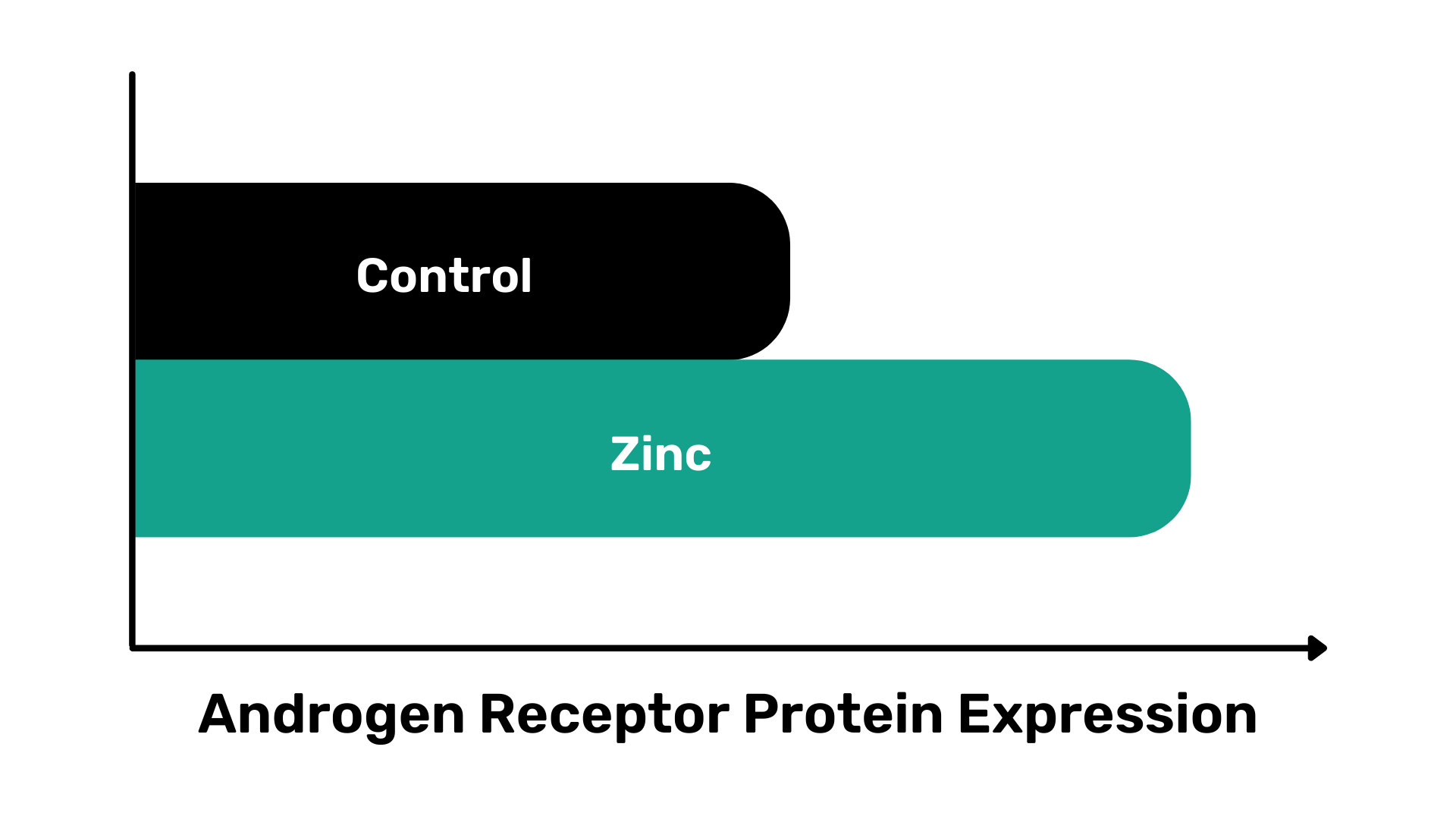
In our exploration of the nutrient zinc, we uncovered its essential role in our bodies, impacting everything from hormone regulation to cognitive function. We further illuminated zinc’s unique ability to increase testosterone levels and its efficacy, catalysing key biological processes such as LH levels, Leydig cell function, DHT levels and androgen receptor activity.
Incorporate Zinc into your diet to ensure you unlock your full potential and maintain prime health.


Wondering how to boost your immune defences and fight against illness? Discover the science of ZMA and how it can help your immune system.

Learn how ZMA can transform your muscle recovery and athletic performance, allowing you to reach your health goals

Studies have shown that testosterone levels are falling. Read this to find out why and what can be done to fix it.

Discover how Vitamin B6 reduces fatigue through energy metabolism, with key facts and intake recommendations.

Complete the form NOW to receive the free ebook and take on the challenge.